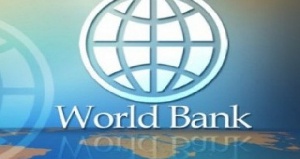Oil and gas equipment procured for the training of artisans for the upstream and downstream sectors of the industry, in line with government’s local content drive, is still sitting in the warehouses of three training institutions.
The equipment, procured under a World Bank US$57million Ghana Oil and Gas Capacity Building Programme, is meant to strengthen local technical capacity in Ghana’s emerging oil and gas sector. However, the equipment have remained locked up.
The World Bank, in its report titled: “ Status of Implementation of World Bank Supported Projects in Ghana” published in the B&FT on Tuesday noted that: “Component B1 (Vocational Education) continues to experience implementation challenges because of delays in installing equipment already procured and delivered to the three vocational training institutions.”
After the start of commercial oil production in 2010, government, through the National Petroleum Authority (NPA), has been leading the local content drive to ensure that indigenes are engaged by oil and gas companies or qualify for contracts in the sector.
Artisans and various service providers, who would have been trained by the three unnamed institutions, have had to wait or seek training elsewhere.
The training is imperative in imparting skills relevant to the oil and gas sector, and to help local companies meet the supply requirements of oil companies respectively.
Local firms in the oil and gas sector operating independently or in joint ventureships received contracts worth a total of US$960 million in the first quarter of 2016, the Petroleum Commission data show.
That represented an increase of 55% over 2015 figure of US$620 million during the same period.
ENI Ghana has also awarded a US$1.75 billion out of a total spending of US$6.2 billion to indigenous companies.
This compares favourably with the over US$1billion contracts awarded to indigenous companies between 2010 and 2015.
As at the end of June 2016, contracts issued to indigenous Ghanaian service providers were in excess of US$221million, representing a rise of about 73 compared to US$128 million in the same period in 2015.
The World Bank has, in the last nine years, disbursed US$1.12 billion (65.9) to Ghana, out of a total US$1.7 billion earmarked for some 24 projects.
The projects are being carried out in sectors like energy, health, education, water, agriculture and fisheries, transport and ICT, public services, social protection, environment, natural resource and climate change.
The projects are at various stages of completion, with the earliest one being a US$220 million Energy Development and Access Project, approved by the bank’s board in 2007 and scheduled to end this year.
Henry Kerali, World Bank Country Director for Ghana, Liberia and Serra Leone, told the B&FT at the bank’s Country Portfolio Performance Review (CPPR), that: “We are satisfied with the outcome but there are still challenges that remain…”
Business News of Friday, 7 April 2017
Source: thebftonline.com













